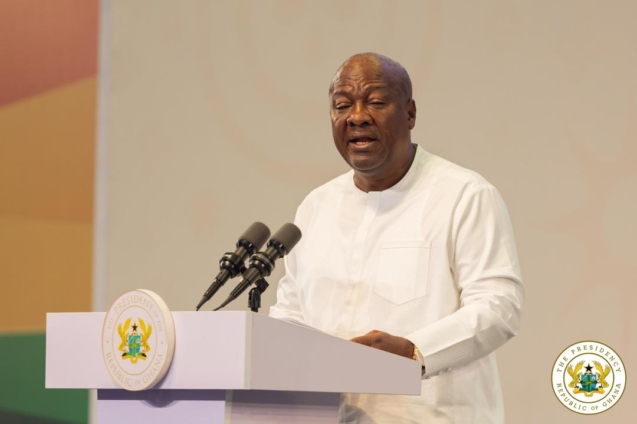adverts
President John Dramani Mahama’s ministerial and regional appointments have sparked debate over gender representation in Ghana’s leadership. Out of the 42 appointments announced since he assumed office in January 2025, only seven are women, highlighting a persistent imbalance in the country’s political leadership.
While the appointments reflect a commitment to competence and experience, the low representation of women—just 17% of the total—has raised concerns about inclusivity in governance.
The seven women in President Mahama’s team hold critical portfolios:
adverts
- Agnes Naa Momo Lartey (Minister for Gender, Children, and Social Protection): Overseeing issues of social welfare, women’s empowerment, and child protection.
- Abla Dzifa Gomashie (Minister for Tourism, Culture, and Creative Arts): Spearheading efforts to promote Ghana’s cultural heritage and tourism industry.
- Emelia Arthur (Minister for Fisheries and Aquaculture): Leading initiatives to boost Ghana’s fishing sector and ensure sustainable practices.
- Elizabeth Ofosu Adjare (Minister for Trade, Agribusiness, and Industry): Driving trade and industrial development in the agribusiness sector.
- Mrs. Rita Akosua Adjei Awatey (Eastern Regional Minister): Overseeing regional governance and development in the Eastern Region.
- Linda Ocloo (Greater Accra Regional Minister): Managing affairs in Ghana’s most populous and economically vibrant region.
- Charity Gardiner (Ahafo Regional Minister): Coordinating government initiatives and development in the Ahafo Region.
The initial list of appointments, announced on January 9, 2025, included no women, sparking early concerns about gender inclusivity. Subsequent announcements added female appointees, but the overall representation remains modest.
President Mahama’s decision to appoint women to high-profile roles such as Gender, Trade, and Regional Ministries has been acknowledged as a step forward.
However, advocates for gender equity argue that more needs to be done to ensure balanced representation in government.
Several civil society organisations and gender advocacy groups have urged the president to address the disparity in future appointments. They emphasise the importance of leveraging the skills and perspectives of women in decision-making processes to achieve a more inclusive government.


